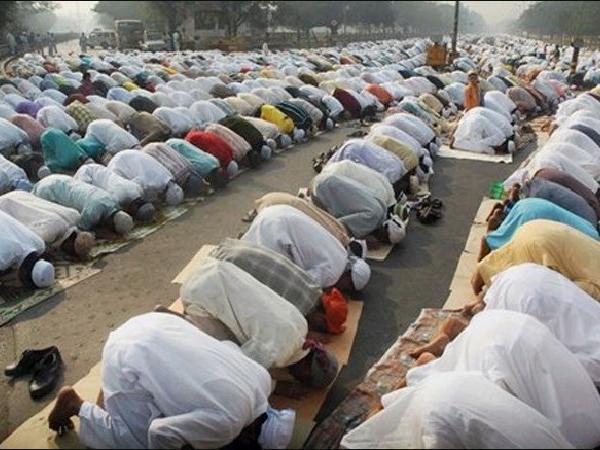Lucknow: The Uttar Pradesh Police has decided to impose a blanket ban on offering of Friday ‘namaaz’ on roads across the state.
“On special occasions, when large crowd gathers for offering prayers on festivals, it could be allowed by the district administration, but this practice will not be allowed as a routine during every Friday prayer,” Director General of Police (DGP) O.P. Singh said.
Directions have been issued to all the district police chiefs and other authorities to ensure that no namaaz is offered by blocking roads.
The DGP said similar ban was initially imposed in Aligarh and Meerut, and now efforts were on to enforce it across the state. The Aligarh district administration had even issued a detailed circular banning namaaz on roads and it has been imposed successfully.
Hindu outfits, in retaliation against the practice, had started reciting ‘Hanuman Chalisa’ on roads in several districts on Tuesdays and Saturdays which was gradually paving the way for a confrontation between two communities.
The DGP said the district officials had been asked to hold meeting with clerics and mosque administrations to sensitize them on how namaaz on roads interrupted smooth traffic flow and caused other problems.
He further said that other religious communities would also not be allowed to hold religious gatherings on roads if it interrupted the traffic flow or caused inconvenience to others.
Meanwhile, well known Sunni cleric and member of the All-India Muslim Personal Law Board (AIMPLB) Maulana Khalid Rashid Firangi Mahali said: “There are only a few mosques where Muslims have been offering prayers outside the premises.
“Even in the past, we had appealed to Muslims to not offer namaaz by blocking the road as it causes inconvenience to other people. There were instances when people offered namaaz on the roof of the mosque. We have suggested people to go to other mosques,” he added.
IANS

